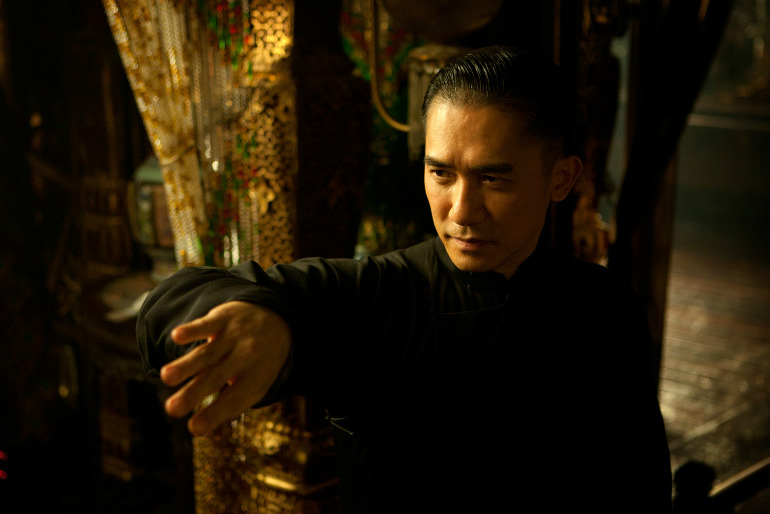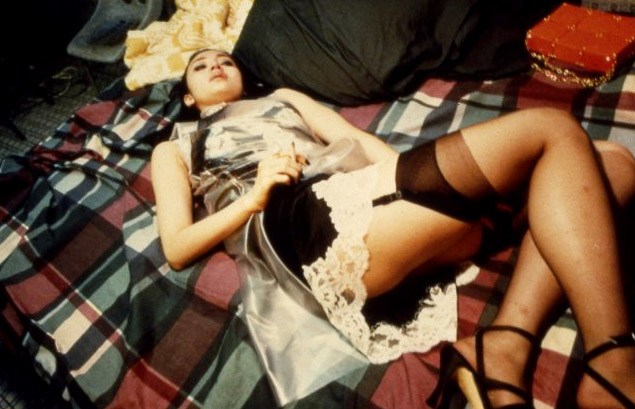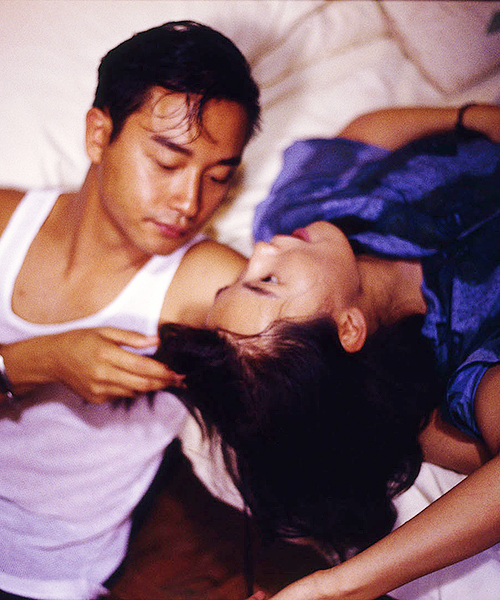
As a 19-year-old film student, when I learned the definition of the word auteur, I was so excited I had to paint it on my stomach, Riot Grrl style, and make a movie about it. Youthful blasphemy aside, I've always been drawn to directors whose vision is so strong as to create that distinctive mood which would potentially define them as an auteur. Amidst all the terrible, formulaic crap that comes out, you have to appreciate someone, wholly successful or not, who is actually attempting something. It's natural that being inventive might result in flawed movies. The risks of making genuinely creative work, with a boldness and experimentation that eschews mainstream concerns, are the sometimes shaky results. But those are the movies I want to watch. Demonstrating both the benefits and the downfall of being an auteur, Wong Kar Wai's swirling, vivid films are full of the mistakes, incongruities and strangeness of a visionary.
Fallen Angels (1996) was the first Wong Kar Wai movie I saw and it will be forever seared in my brain. It's profoundly gorgeous, but the style is also the substance and that's why it's so phenomenal. It isn't just gorgeous; it's romantic and melancholy, rich with psychological exploration. It's both cool and sincere simultaneously, a combination that is Wong Kar Wai's signature strength. He's clearly still concerned with style; in the closing credits to his newest, The Grandmaster, Tony Leung (a stoically bad-ass Wong Kar Wai regular) looks right at the camera and asks, "What's your style?" It's a wonderful moment, playful and serious, a non-rhetorical question, meant to be considered and answered. This isn't about the surface of style, but the soul of it. In this semi-biopic tale, Leung plays Ip Man, a kung-fu master and Bruce Lee's teacher, following his life and never-quite-romance with a fictional woman.

Watching Fallen Angels was the first time I really fell in love with cinematography. I became riveted by the iconic Christopher Doyle, who shot most of Wong Kar Wai's movies, beginning with Days of Being Wild (1990) and ending with 2046 (2004). In some ways, my love of Wong Kar Wai movies is my love of Christopher Doyle cinematography. He also shot Last Life in the Universe, a brutal, surrealistic reverie directed by Pen-Ek Ratanaruang and created the memorable palette of Jim Jarmusch's The Limits of Control. More than once when I've watched a notably well-shot film, it ends up being Christopher Doyle behind the camera. He is belligerently charming, calling Life of Pi, "a fu***** insult to cinematography" (Amen) and ranting about the authentic color of moonlight (it's not blue). Unfortunately if you type Wong Kar Wai and Christopher Doyle into Google, one of the top suggestions is "falling out," so he's not the cinematographer for The Grandmaster. I was curious, but nervous, to see a Wong Kar Wai movie without Christopher Doyle's singular touch.
Wong Kar Wai loves clocks, counters, rain, smoking cigarettes, leaning, stairways, stoicism, loneliness, slow motion, nostalgia and unconsummated everything. The Grandmaster has some of those things (the rain is awesome), but not others. Overall it gets a C+ and the plus is because I was looking for his tell-tale flourishes (they're there) and forgiving him when other things fell short. A.A. Dowd aptly suggests that the confines of the biopic bogged down a director who thrives within fictional worlds. The need of The Grandmaster to explain everything was tiresome, as if endless voice-overs and chunks of text were necessary for us to follow the story. It was also cut from 130 to 108 minutes and by all accounts the longer version is superior. The confines of chronology and history make the story move inexpertly and incompletely through time.
Still there are moments to love in The Grandmaster, moments where Wong Kar Wai pauses and luxuriates as he should. One fight sequence has Zhang Ziyi flipping up in the air over Tony Leung, their faces centimeters apart, the flip slowed down. It's a classic moment of Wong Kar Wai's particular brand of sexiness. In Leung's voiceover, he says of his initial meeting with her, "All encounters are reunions..." That too is classic Wong Kar Wai, the lonely man narrating a wistful truth to us from off-screen. This particularly beautiful line is nearly a thesis statement for all of his movies, a whispered burst of zen interruption, reminding us of what's at stake. It kept ringing around in my head for days afterward.


